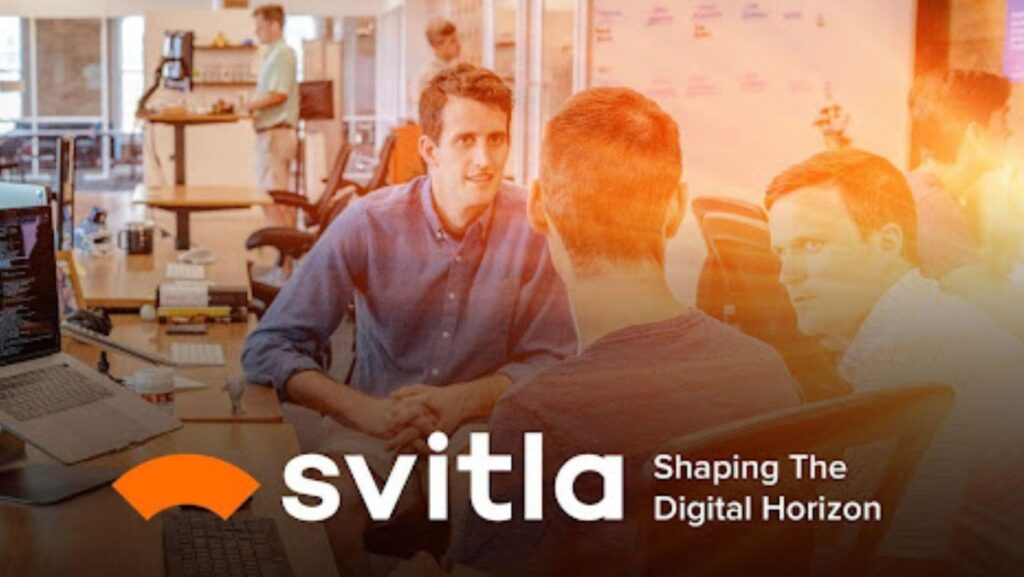
Introduction
2025 shows that digital transformation is no longer a choice but a necessity. SaaS companies are changing their approach to products, fintech is reshaping finance around the customer, and e-commerce is seeking a balance between speed and security.
Svitla Systems operates at the crossroads of these industries. We see which technologies stop being buzzwords and turn into working tools. In this article, we analyze the key trends that will define the market in the coming years.
Each trend is based on real practices and client requests we handle daily. This is an insider’s view of an industry where solutions are tested in real projects, not just in labs.
Intelligent Automation And Low-Code / No-Code Solutions
Companies in SaaS and fintech are actively adopting intelligent automation. It takes over routine tasks: transaction checks, data processing, client inquiries. The result – fewer errors and faster service.
Demand for low-code / no-code platforms is also growing. They accelerate application delivery. Not only developers but also analysts and product managers can now create working prototypes. In e-commerce, this speed is crucial: new features hit the market in weeks, not months.
Based on project experience across industries, the https://svitla.com team sees these solutions as key to rapid adaptation and sustained competitive advantage. When a product can be scaled or modified without heavy coding, it becomes a decisive success factor.
Artificial Intelligence And Personalization
Artificial intelligence (AI) has become central in SaaS, fintech, and e-commerce. Companies use it to forecast customer behavior, assess credit risk, and drive recommendations in online stores.
The key market request is personalization. Users no longer accept generic offers. They expect services that understand their habits and preferences. In 2025, successful companies employ AI to build individualized customer journeys.
The table below shows how different industries apply AI:
| Industry | AI Application | Business Outcome |
| SaaS | User data analytics | More accurate churn prediction |
| Fintech | Creditworthiness assessment algorithms | Fewer defaults |
| E-commerce | Recommendation engines | Higher average order value and conversion |
AI is no longer an experiment. It is a practical tool with direct impact on revenue and retention.
Cybersecurity And Zero Trust Architecture
The growth of digital services always brings a rise in attacks. Fintech and e-commerce are prime targets. In 2025, companies are shifting to the Zero Trust principle: no one is trusted by default, every action must be verified.
Zero Trust requires layered protection. This includes multi-factor authentication, network microsegmentation, and continuous activity monitoring. The approach reduces the chance of leaks even when a single component is compromised.
For SaaS platforms, protecting customer data is mission-critical. Strong encryption and strict access control are now core product features, not optional add-ons. Users increasingly choose services based not only on functionality but also on security standards.
Svitla Systems applies these practices across projects. We see how Zero Trust helps companies meet rising regulatory requirements and preserve client trust.
Cloud Solutions And Hybrid Architectures
The classic “move everything to the cloud” model is no longer the main trend. In 2025, companies are choosing hybrid architectures that combine public clouds, private clusters, and on-premises servers. This mix balances flexibility with data control.
SaaS providers rely on the cloud for scalability. Fintech prefers hybrid models to keep sensitive data local while still benefiting from cloud computing. For e-commerce, cloud solutions enable handling seasonal traffic spikes without overspending.
The keyword here is adaptability. Companies design infrastructures that can shift quickly to meet new demands. Hybrid architectures are not just about saving costs – they are becoming a tool for strategic growth.
Sustainable Development And Green IT
By 2025, businesses can no longer ignore sustainability. Green IT is now part of SaaS, fintech, and e-commerce strategies. Clients and investors expect technology to be fast and convenient but also energy-efficient.
Companies reduce carbon footprints through data center optimization, renewable energy, and lighter algorithms. In SaaS, this means fewer resources for application maintenance. In fintech – streamlined transaction systems. In e-commerce – eco-friendly supply chains and reduced paper use.
Svitla Systems supports this shift by implementing solutions that boost performance while lowering energy consumption. In the long run, Green IT is no longer optional – it has become a prerequisite for global competitiveness.
Conclusion
The technology trends of 2025 show SaaS, fintech, and e-commerce moving toward speed, flexibility, and security. Intelligent automation cuts launch times for new features. AI and personalization turn services into smart assistants. Zero Trust protects data where vulnerabilities once existed. Hybrid clouds ensure adaptability, while Green IT builds sustainable business.
Svitla Systems observes these changes from inside real projects. We help clients adopt solutions that work today and form the foundation for tomorrow. The tech world is changing fast, but clear principles – speed, security, personalization, and responsibility – remain the keys to success.



